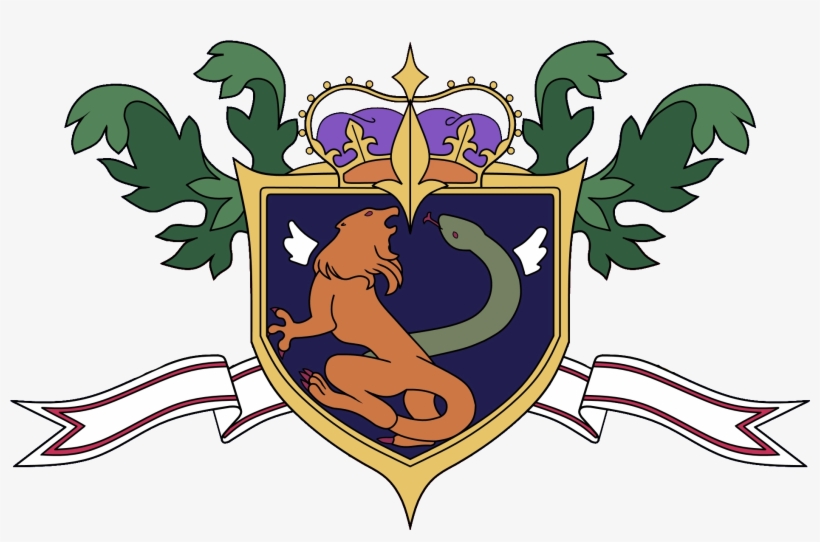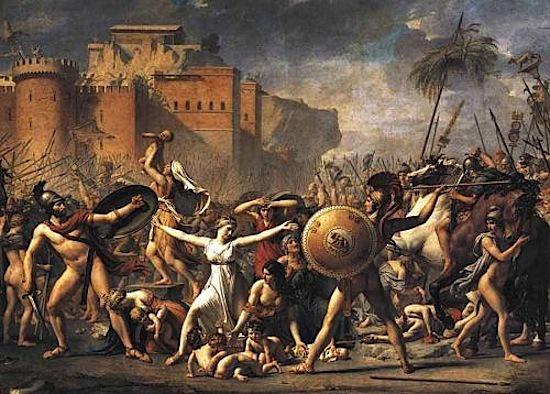But first...
 (Note: I have no idea if this is a real flag that was used or not, but it's pretty damn cool, isn't it?)
The Britannic Empire (286 - 296)
(Note: I have no idea if this is a real flag that was used or not, but it's pretty damn cool, isn't it?)
The Britannic Empire (286 - 296)
There were two things every man needed to possess in order to progress, even survive, in the Roman Empire, and those were ambition and a sense of ruthlessness. If you were squeamish, if you were weak, if you were idle or just not prepared to do what needed to be done, you didn’t last long. Most of the emperors had risen to power by one of two means: bribery or murder, often both. Even when there was a clear line of succession to the throne, a prospective claimant could be unseated or even prevented ascending if his enemies - often from within his own family - were powerful or rich enough, or had enough support to oppose him. Thus, while Greece was the world’s first democracy, Rome was anything but, and the men who sat on the throne were forever restive, anticipating - sometimes with cause, sometimes without - a challenge to their reign.
It was enough to drive you mad. And some emperors did indeed descend into madness, such as Nero and Caligula, and surely others too. But then again, it could be seen perhaps as a good thing that, unlike the line of royal succession a millennium later in England, in effect any Roman could rise to be emperor, somewhat like the American presidency. Of course, he usually had to be from the right background, but theoretically, once enough money had crossed enough palms or enough knives had been sunk into enough backs, the way was often clear for a man to take power who should, and often did, have no such claim to the throne.
Thus it was with Marcus Aurelius Mausaeus Carausius, who was a commoner who had clawed his way up the ranks of the Roman military and was given command of keeping the seas around France clear of Saxon and Frankish raiders. However accusations that he was in fact in league with the pirates, that he allowed them to loot and then they paid him a percentage, in a sort of perhaps ancient foreshadowing of the Mafia, led to the order being given for his execution by the then-emperor, Maximian. In response, Carausius declared himself “Emperor in the North” (shades of
Game of Thrones, huh?) and with the fleet at his command he was able to back this up. Maximian sent a force to take back Britain from him in 288 or 289 but suffered a defeat, and Carausius remained emperor of that part of the world.
He also made alliances with the natives, who were at this point weary of Roman rule, and set himself up as
Restitutor Britanniae (Restorer of Britain) and
Genius Britanniae (Spirit of Britain). In this way he presumably hoped to show or prove that he was the great liberator who would release Britain from the yoke of its longtime oppressor, and allow them some form of autonomy. Whether he had any intention of doing this or not is unknown, but he needed the support of the Britons and, like most Romans, was ready to say what was needed. He could always go back on his word later.
He therefore set up what became known as the Britannic Empire, which was not to last long, with the end beginning in 293, when the emperor Constantius Chlorus cut Carausius off from his Gaul allies by besieging the port of Gesoriacum, modern Boulougne-sur-Mer, and invading Batavia. After seven years in power, Carausius fell victim to the favourite Roman pastime, assassinate-my-leader, when his treasurer, Allectus, did just that, taking the title of emperor for himself. He was not to hold it long, as an invasion fleet arrived in 296, quickly routing his army and once again Londinium was the scene of a massacre. The Britannic Empire had lasted ten short years, and direct Roman rule was once again established over the island.
 Barbarians at the Gates: The End of Roman Rule in Britain, and the Beginning of the Fall of the Roman Empire
Barbarians at the Gates: The End of Roman Rule in Britain, and the Beginning of the Fall of the Roman Empire
I’m sure that, to someone living at the time, especially those living under Roman rule, it must have seemed completely inconceivable that this might empire could ever fall, but as history tells us, nothing lasts forever, and while Rome may not have been built in a day, for an empire that had lasted a thousand years she certainly fell within a couple of hundred. Incursions by German (Teutonic) tribes such as the Goths and the Visigoths and the Franks proved too strong for the empire to resist, perhaps as a result of being spread too thin, or perhaps due to internal politics or bad management, or arrogance and overconfidence, or bad strategy. I’m sure scholars have many reasons why Rome fell, but the barbarians didn’t care why, they just intended it should.
And it would.
Certainly, internal power struggles which often erupted into civil war did not help the cause of the Romans, and to some degree the Visigoths and their allies had only to sit back and watch the greatest empire the world had ever known tear itself apart, though of course they made sure they did some of the tearing themselves. As the situation became increasingly desperate for Rome, they began to consolidate their forces to defend the empire against the encroaching hordes, and this meant that Britain became less a priority, as troops were shipped back home to assist in the defence of the motherland.
By about 383 the north and west of Britain had been cleared of any Roman presence, and around 407 Constantine III took what troops remained from Britain to aid in the defence of Rome (or actually, to try to set himself up as emperor), but neither he nor the currently-serving emperor, Honarius, could prevent the Visigoths breaking through and Rome was sacked in 410, effectively bringing to an end the mighty Roman Empire.